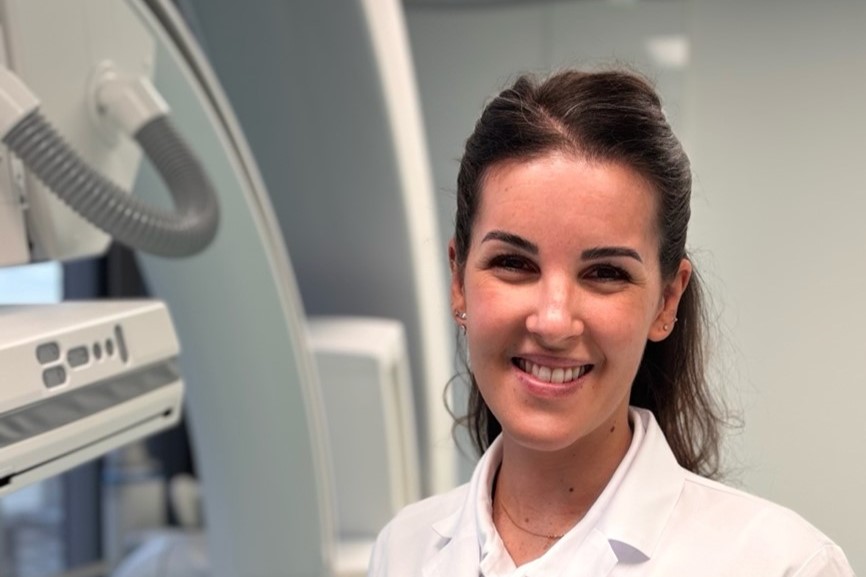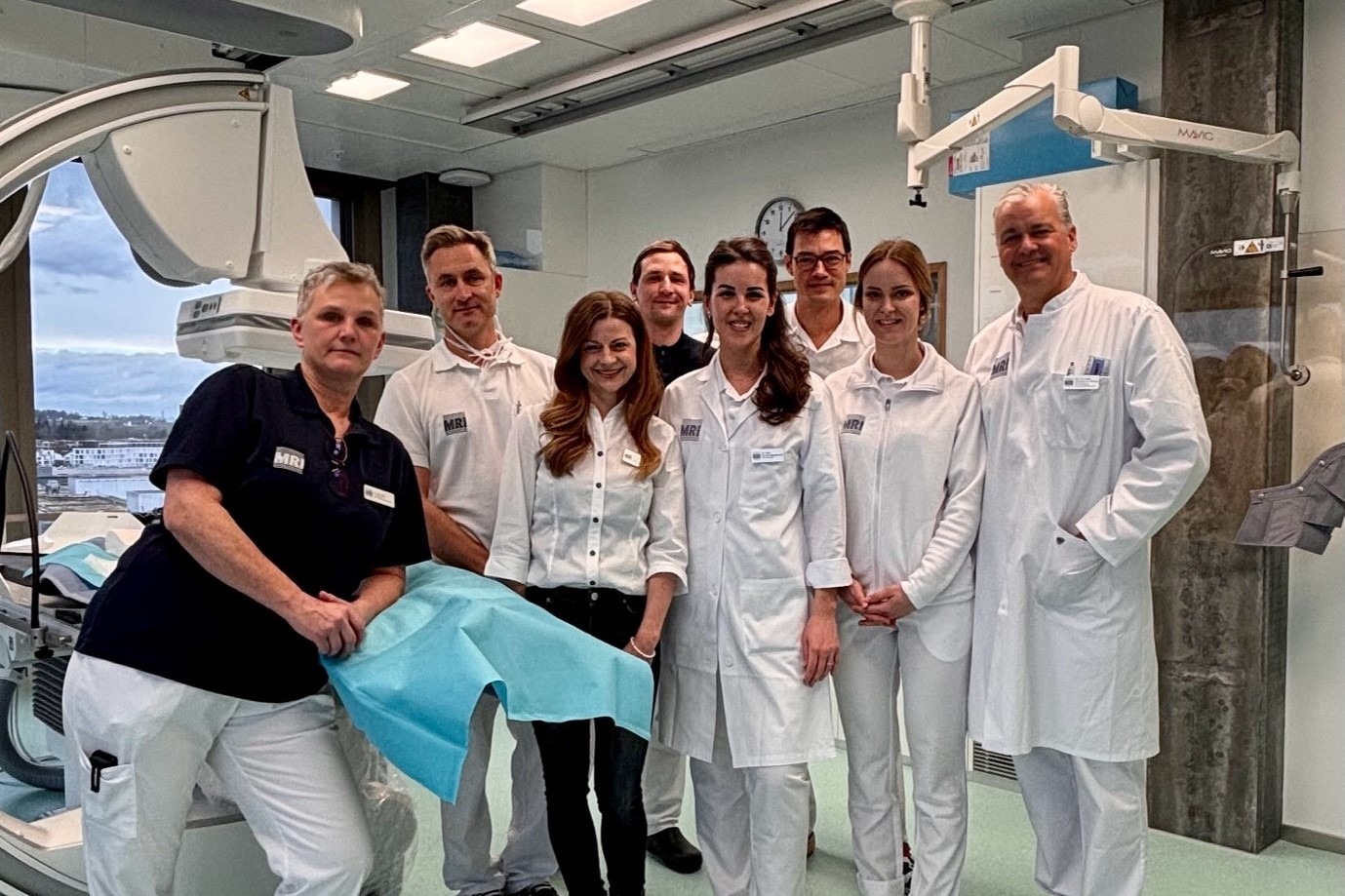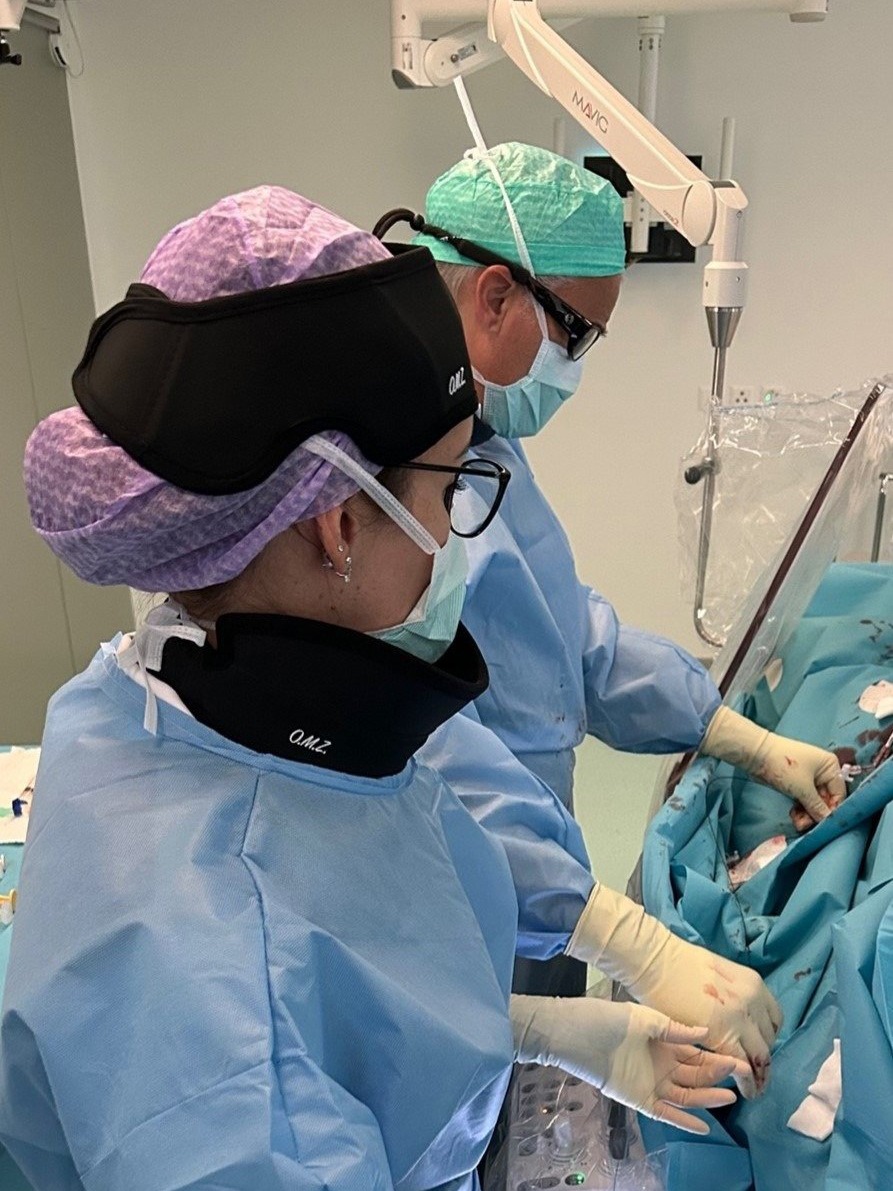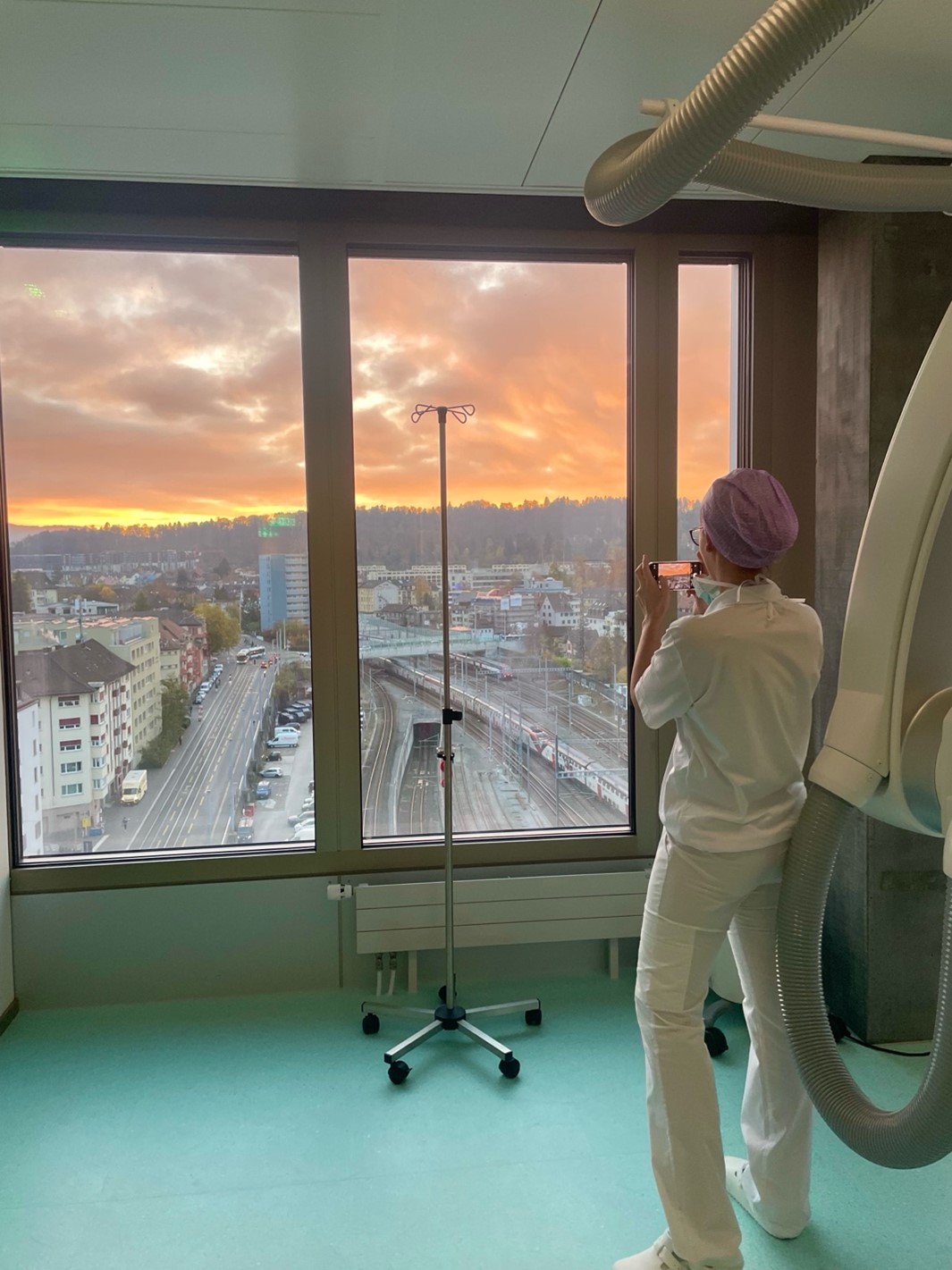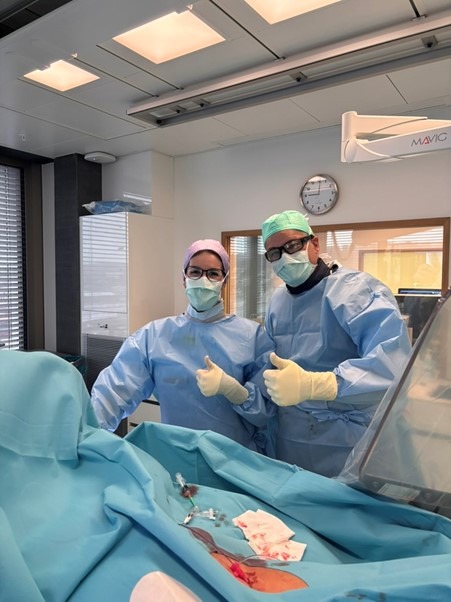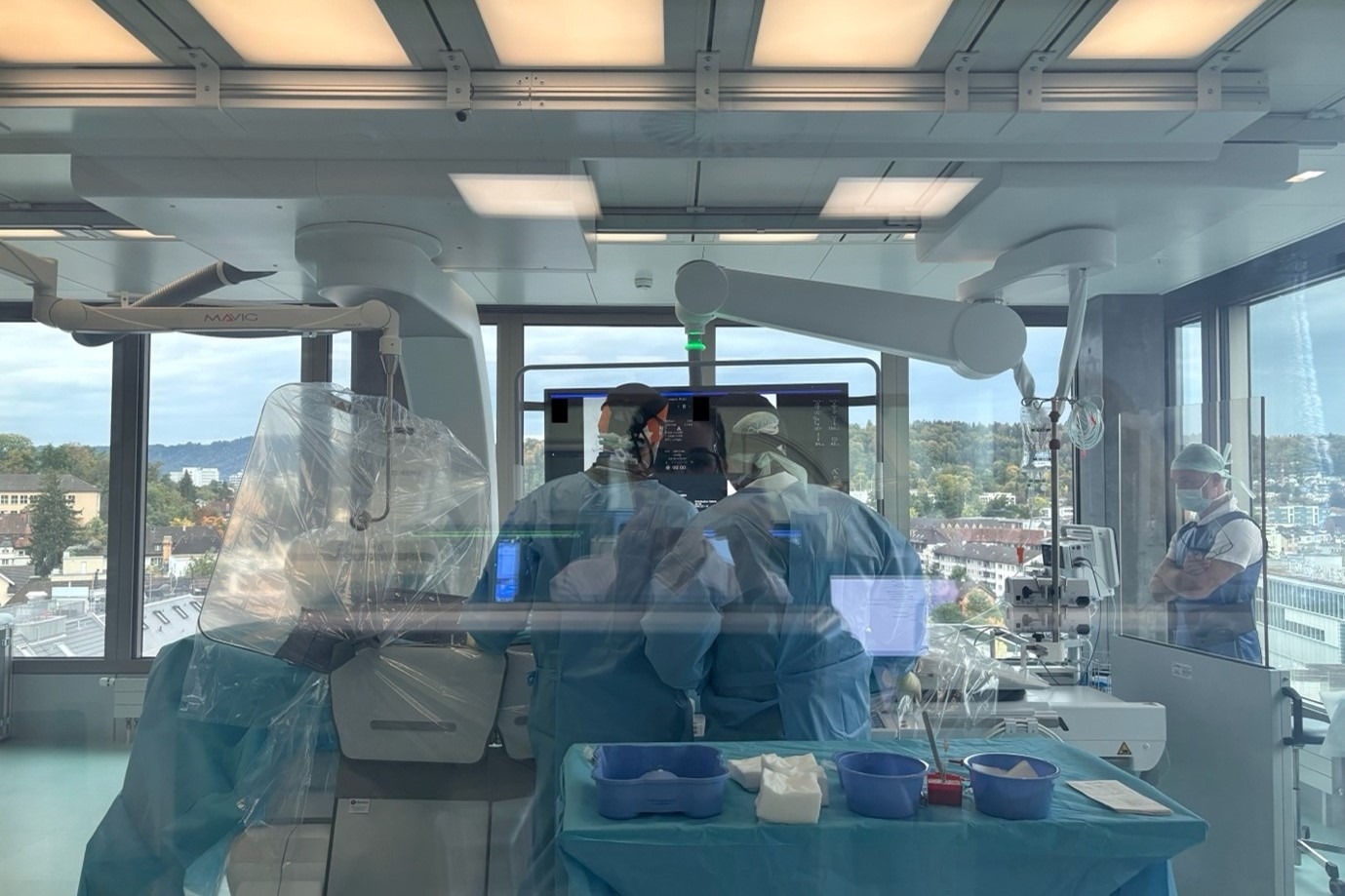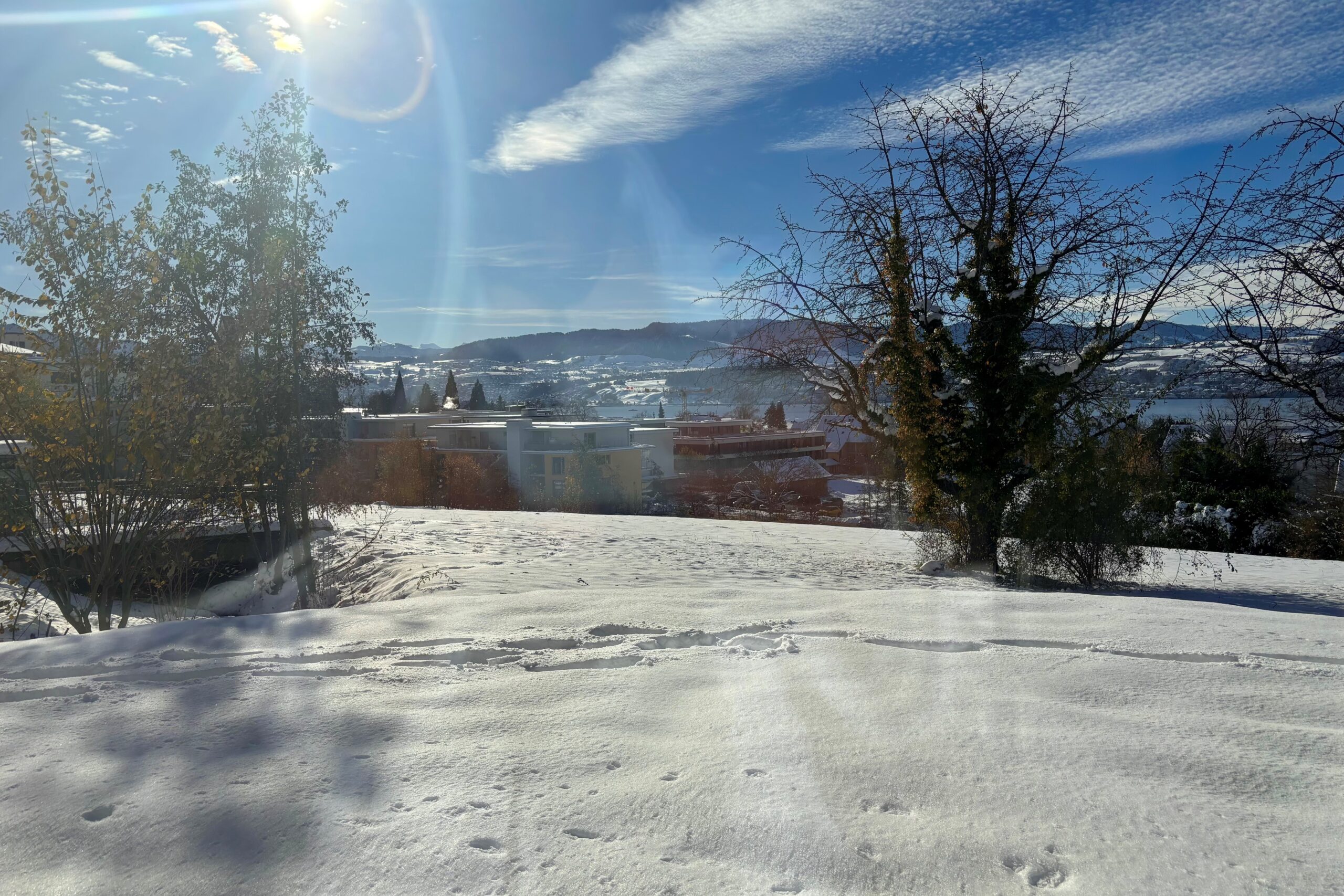by Dr. Ornella Moschovaki-Zeiger
My name is Ornella Moschovaki-Zeiger, and I am in the first year of an interventional radiology fellowship at the 2nd Department of Radiology at the University General Hospital “ATTIKON” (Medical School, National & Kapodistrian University of Athens) in Athens, Greece. We are one of the biggest hospitals in Greece, with an interventional radiology department that plays a crucial role in managing patients in the whole of Athens, as well as rural areas and islands.
Driven by a desire to explore an innovative centre of excellence that primarily delivers patient-centred care while emphasizing the clinical management of patients in interventional radiology, I chose to apply for the CIRSE Fellowship Grant, which I was pleased to receive. This grant offered me the opportunity to pursue a fellowship at the Medizinisch Radiologisches Institute (MRI) Outpatient Interventional Radiology (IR) Clinic in Zurich, Switzerland, under the mentorship of Professor Christoph Binkert, which greatly fuelled my enthusiasm for interventional radiology.

